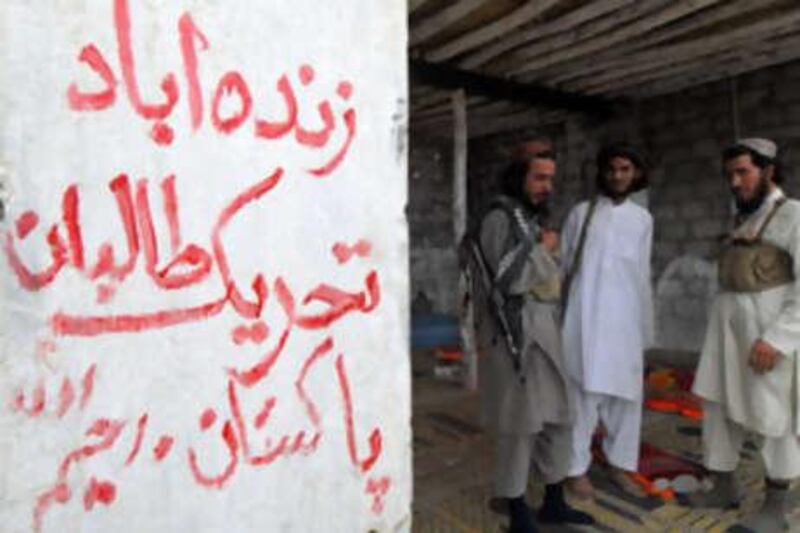The leader of Pakistan's Taliban militants has been put on a UN sanctions blacklist for his links to Al Qaeda.
Mufti Noor Wali Mehsud will be subject to asset freezes, a travel ban and an arms embargo after being listed alongside the world's most senior Al Qaeda and ISIS terrorists.
Both Pakistan and the US welcomed the move against the head of a group that has killed thousands as violence wracked Pakistan during the war on terror.
The sanctions against Mehsud were imposed for “participating in the financing, planning, facilitating or perpetrating of acts or activities by, in conjunction with, under the name of, on behalf of, or in support of” entities associated with Al Qaeda, his listing read.
The scholar had already been designated a global terrorist by the US last year, giving American officials greater powers to go after his finances and assets.
The US State Department welcomed the UN's measures. “TTP [Tehreek-e-Taliban Pakistan] is responsible for many deadly terrorist attacks in Pakistan,” it tweeted.
Mehsud took the reins of the TTP two years ago, after his predecessor, Mullah Fazlullah was killed in a US drone strike.
The movement he inherited was a shadow of the fearsome insurgent group accused of killing thousands in the previous 15 years.
Tribal disputes had fractured its support base, while a series of major army security operations pushed many of its fighters across the border into Afghanistan. Large numbers of fighters defected to other militant groups hiding along the Afghanistan-Pakistan frontier, particularly ISIS.
As the militants were pushed out, nationwide security improved sharply. Attacks attributed to the TTP fell from 352 in 2014, to 82 in 2019 according to the Pak Institute for Peace Studies in Islamabad, which tracks militant violence.
Mehsud came to power vowing to reset the movement and rebuild alliances between its estranged factions. He attempted to stamp his authority on the organisation soon after his accession, with a new set of guidelines for commanders, detailing when to use suicide bombings, how to resolve internal quarrels and what to do with spies.
A series of attacks on troops in recent months coincided with reports that some TTP fighters have returned from across the Afghan border to districts such as North Waziristan.
Yet the group still remains weak compared to its former status, said Fata Research Centre’s Saifullah Mahsud.
“They haven't been as effective as you were used to, say five, six, seven, eight years ago, when the Taliban could attack at will anywhere in the country and they were very much present in North and South Waziristan on the ground, practically being the government there,” he said.
“That position that they lost after the Zarb-e-Azb [military offensive] they never managed to regain.”
Pakistan's Ministry of Foreign Affairs said the country "welcomes the designation of Noor Wali [...] by the United Nations Security Council 1267 Sanctions Committee on its ISIL and Al Qaeda sanctions list.
"The sanctions are being implemented by Pakistan in compliance with the relevant UN Security Council resolutions and we hope that other countries will also follow suit."






